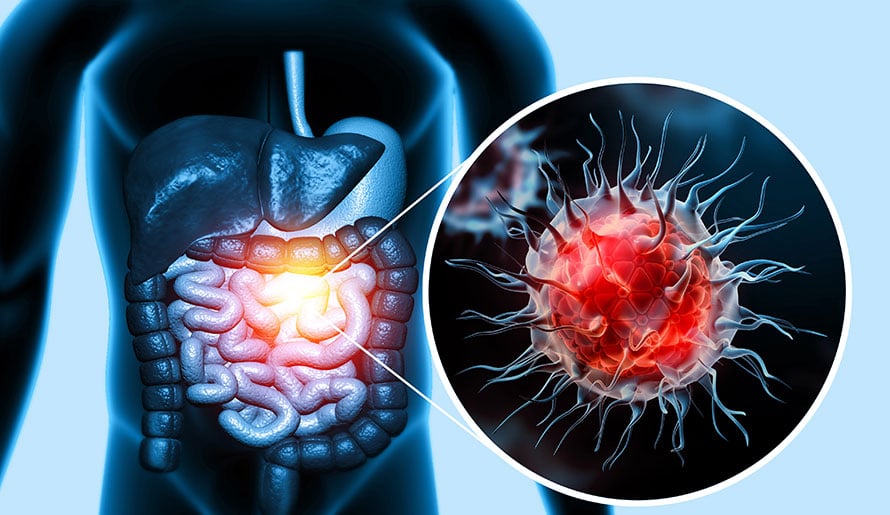How Long Does Colon Cancer Take to Develop?

Colon cancer, or cancer that begins in the lower part of the digestive tract, usually forms from a collection of benign (noncancerous) cells called an adenomatous polyp. Most of these polyps will not become malignant (cancerous), but some can slowly turn into cancer over the course of about 10-15 years. Once cancer has developed in the colon, its progression will vary according to the cellular makeup of the tumor and other factors, such as the age and overall health of the patient.
The general progression of colon cancer tends to be slow, but it is still a serious disease that warrants prompt medical attention. If you notice any of the following symptoms, be sure to speak with a physician:
- Frequent diarrhea or constipation
- Blood in stool
- A persistent urge to have a bowel movement
- Thin, shoelace-like stools
There are also many benign conditions that can cause these symptoms to occur. The sooner you seek medical care, the faster you’ll be able to experience relief and find answers to your health questions. Like most other cancers, early detection of colon cancer is key to a successful outcome and positive quality of life.
How is colon cancer detected?
The best way to detect colon cancer is to receive a colonoscopy, a procedure that involves inserting a small camera through the lower portion of the digestive tract. A person who is considered to be at an average risk of colon cancer should receive a colonoscopy once every ten years after the age of 50. If you have a diabetes, an inflammatory intestinal condition or a family history of colon cancer, consider speaking with your doctor about starting screening sooner. There are also a few other ways to test for colon cancer, including an at-home fecal immunochemical test (FIT) and a computer tomographic (CT) colonography that produces a detailed image of the colon.
Moffitt Cancer Center offers a full spectrum of colon cancer screening, including colonoscopies and high-sensitivity blood tests, to adults who want to be proactive about their digestive health. Our professionals will be happy to speak with you about what screening method would be best for your unique needs. Call 1-888-663-3488 or submit a new patient registration form online.
